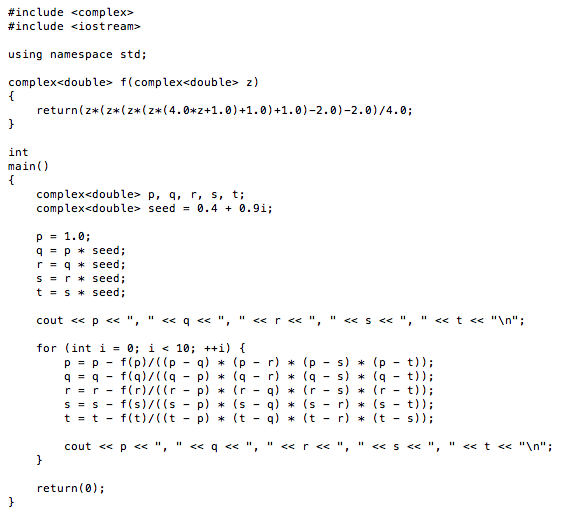How do you find the zeros of #f(x) = 4x^5 + x^4 + x^3 + x^2 - 2x - 2#?
1 Answer
Numerically...
Explanation:
Given:
#f(x) = 4x^5+x^4+x^3+x^2-2x-2#
By the rational roots theorem, any rational zeros of
That means that the only possible rational zeros are:
#+-1/4, +-1/2, +-1, +-2#
None of these is a zero and hence we can tell that
Note that the signs of the coefficients are in the pattern
The signs of the coefficients of
In fact it has two complex conjugate pairs of non-real complex zeros.
Typically for a quintic polynomial none of these zeros is expressible in terms of
Using a Durand-Kerner method, I found approximate zeros:
#x_1 ~~ 0.854463#
#x_(2,3) ~~ 0.144877+-1.00403i#
#x_(4,5) ~~ -0.697109+-0.287521i#
Here's the C++ program I used:

See https://socratic.org/s/aSVeQs9C for another example and a fuller description of this method.

